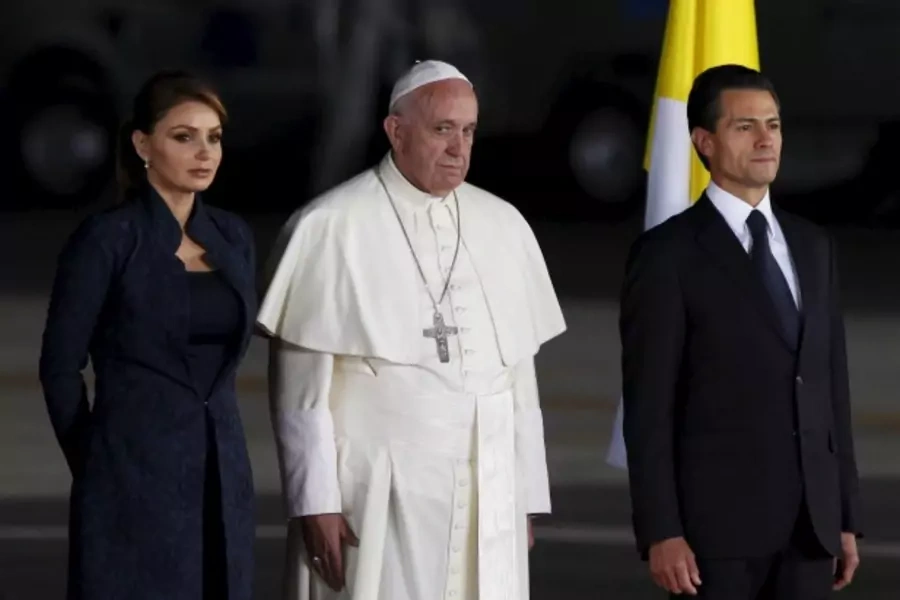This Week in Markets and Democracy: Mexico’s Anticorruption Pressure, Ukraine’s Stalled Reforms, and U.S. Acts on Forced Labor

More on:
Pressure for Mexican Action on Corruption
During a five-day visit to Mexico, Pope Francis repeatedly denounced corruption, decrying the “path of privileges or benefits for a few to the detriment of the good of all.” His message coincides with a strong push by civil society groups to change the status quo. Many are monitoring Congress to ensure it meets a May deadline for secondary legislation to get the National Anticorruption System, signed last year by President Peña Nieto, working. Others are behind the Ley3de3 campaign, which would introduce legislation that defines official corruption and conflicts of interest, and increases the ability to prosecute and convict perpetrators. Coalescing around a social media campaign, active business involvement, academic backing, and even a nod from the pope, the movement needs 100,000 signatures; they hope to collect many times that. Then the question will be whether politicians will tie their own hands.
Patience Fades over Ukraine’s Stalled Reforms
Ukrainian President Petro Poroshenko passed anticorruption legislation as a growing political crisis threatened international aid. Two prominent reformers—the finance minister and number-two prosecutor—resigned in protest against corruption. They claim Poroshenko’s administration is sabotaging investigations and enabling political cronies. Western forbearance faded too. The International Monetary Fund (IMF) warned it would stop disbursing funds from a $40 billion package without drastic changes. The United States also threatened to cut $190 million in aid. Yet, without significant outside aid and pressure, a needed overhaul of Ukraine’s corrupt judicial system and Poroshenko’s oligarchic government is unlikely.
Can the United States Keep Out Forced Labor Products?
A recently-passed U.S. trade bill closes an arcane trade loophole that abetted global labor rights abuses. It will overturn a Depression-era tariff amendment that allowed imports of goods produced by slave or child labor if the United States could not otherwise meet demand. This change could affect Brazilian-grown cotton, Thai-caught fish, shoes manufactured in Bangladesh, and 350 other items that the U.S. Department of Labor warns forced or child workers sometimes make. But the challenge for customs agents is determining which cotton, coffee, tea, rice, rubber, or brick imports are “clean” when the multinationals themselves often fail.
More on:
 Online Store
Online Store